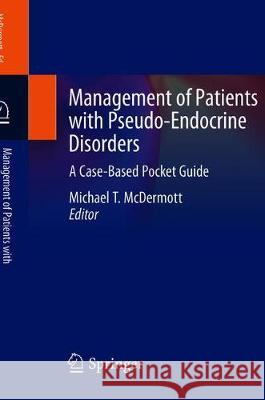Management of Patients with Pseudo-Endocrine Disorders: A Case-Based Pocket Guide » książka
topmenu
Management of Patients with Pseudo-Endocrine Disorders: A Case-Based Pocket Guide
ISBN-13: 9783030227197 / Angielski / Miękka / 2019 / 351 str.
Kategorie BISAC:
Wydawca:
Springer
Język:
Angielski
ISBN-13:
9783030227197
Rok wydania:
2019
Dostępne języki:
Ilość stron:
351
Waga:
0.50 kg
Wymiary:
20.07 x 13.21 x 1.78
Oprawa:
Miękka











